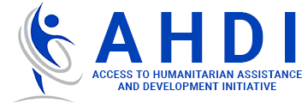A recent UNICEF survey shows that Nigeria’s population growth has put pressure on the country’s resources, public services and infrastructure. With children under 15 years of age accounting for 45 per cent of the 171 million population, the burden on education has become overwhelming. It opined that primary school enrollment has increased in recent years, but net attendance is only about 70 per cent.
In addition, Nigeria has 10.5 million out-of-school children, which is the world’s highest number (with higher numbers from outcome of some recent researches). While the number of out-of-school children is increasing at alarming rate, it would be more tragic to see the figures rise even higher because of the number of students that may drop out of the school system if the resources to keep them in school is beyond their reach or if the facilities for safe and conducive learning environment is limited.
Public primary schools in Nigeria are facing serious problems despite its huge number of pupils it has to cater for. Public primary schools in Nigeria are usually neglected compared to their privately owned and operated counter parts. They continue to grapple with numerous problems and challenges not limited to lack of basic infrastructures and conducive learning environments for the pupils.
There had been several debates on the acceptable budgetary allocation to the education sector. That said, the fact remains that there is need for emergency attention as the overall concern remains that investments in the education sector had not been substantial enough to tackle infrastructural gaps that can create the enabling platforms for quality education for all children. Education is the vital driver of economic growth and development and serves as instrument for transformation of every society, but it continues to take the back seat in terms of priorities for investment. There is no doubt that primary schools are the first learning institutions that introduce formal education or literacy to children. Thus, it is of paramount importance to strengthen and support primary school education which serves as the foundation upon which all other levels of education are built.
Access to Humanitarian Assistance & Development Initiative (AHDI) recently visited some LEA primary schools in Kubwa, Abuja to sight existing needs that it can support within its strategic framework. The visit further amplified the existing challenges facing the public primary schools and also enabled AHDI have interactions that created more awareness into the daily challenges facing the children in our public schools. As already identified by many reports and further confirmed during AHDI’s visit, affordability of financial resources is one of the key limiting factors hindering access to education for all boys and girls and there is need to explore initiatives that will help solve this challenge so all children can have access to basic primary education.
AHDI also found out that the fees structures across public primary schools did vary from rural to suburban and urban areas. The public primary schools in most remote locations pay as low as N 500 per term and those in urban areas pay as high as N 9,500 for new pupils and returning pupils pay N 1,000 to N 1,500, yet some students cannot afford these fees.
Aside termly fees for pupils, a myriad of challenges faced by some of these public primary schools include overpopulated classrooms, poor sanitation facilities, lack of functional water facilities, broken down water points and toilets (in most cases available toilets were under lock and key). This meant pupils had no access to them hence promoting open defecation which poses health threats to the students. However, some in the suburban and urban areas had boreholes but yet the use of these water points were limited for lack of personnel to operate and maintain these facilities. Overall, these public schools all had challenges not limited to broken down water facilities such as bore holes that require urgent rehabilitation, dilapidated classrooms, roofs and floors among others.
On the positive side, the teachers were passionate about their jobs and concerned about the state of the various broken down facilities in their schools and were willing to seek collaboration and partnerships with organizations such as AHDI – and other organizations that are willing to compliment the efforts of the government.
It is not all gloom because there is hope. AHDI as part of its vision to create a world where everyone is empowered to maximize their potentials, live with dignity and freedom, has initiated the School Infrastructure Improvement Programme (SIIP) to help improve and bridge infrastructural gaps in educational institutions, especially in public primary schools. The Stay In School Initiative (SISI) has also been initiated to help children remain in school, access quality education and improve their educational performance. AHDI has recently unlocked grant opportunities for interested public primary schools in Abuja and its environs as part of its support. More information about the grant opportunity can be found on its official website at https://ahdinigeria.org/grants/
AHDI is also open to collaboration with stakeholders and partners to scale up these initiatives and it believes that in the long run we can together contribute to giving all pupils access to quality education within our schools with adequate infrastructures which will enable the boys and girls have the life of their dreams and help them lead fulfilled lives.
